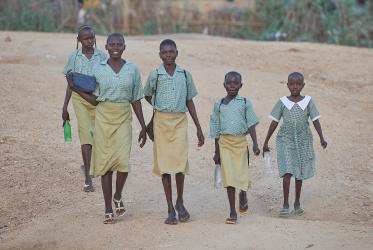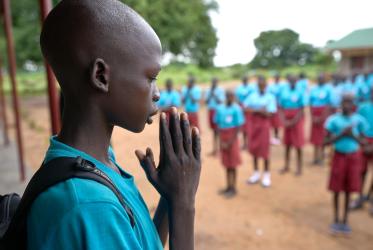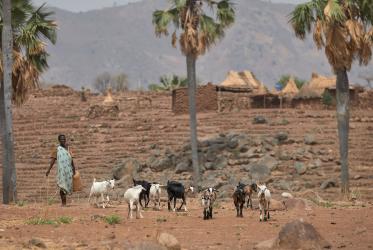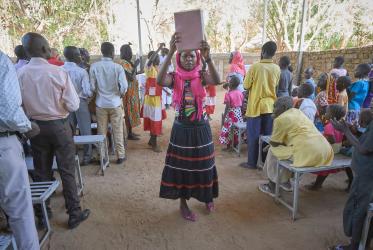Displaying 1 - 20 of 61
04 April 2024
WCC welcomes visit from global Christian leaders to South Sudan
01 February 2023
Calls grow globally for peace and accountability in South Sudan
24 September 2021
South Sudanese Churches shelter populations displaced by floods
23 September 2021
South Sudan Church leaders welcome new cabinet
15 March 2020
















